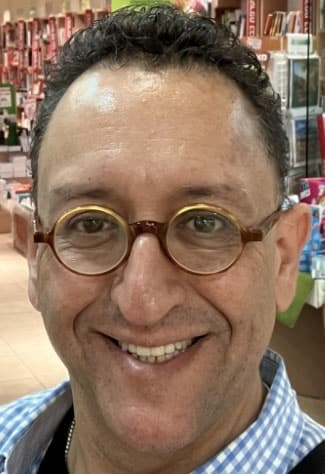For many years, Tisha b’Av was off the radar of the national Israeli narrative. Many Israelis viewed the ancient day of fast as an antiquated observance lacking contemporary relevance. Some argued that Yom HaShoah and Yom HaZikaron are the “new Israeli Tisha b’Av,” and — especially after Jerusalem was reunited in 1967 — the ongoing mourning over Jerusalem seemed outdated.
Despite these feelings, beginning the evening of July 25 this year and lasting through the following night, millions of Jews around the world — including here in Israel (where I’m staying for the summer) — will observe the day of fast, mourning the destruction of both Temples that once stood in Jerusalem. Why do we continue to fast and mourn on Tisha b’Av?
In his introduction to the Book of Genesis, the Netziv (19th-century rosh yeshiva and rabbinic scholar) provides a powerful description of what happened on Tisha b’Av:
The Jewish community of the Second Temple period was a crooked and perverse generation. True, they were Tsadikim (righteous) and Hasidim (pious), and among them lived many great Torah scholars. However, they were not Yesharim (upright and just) in their daily conduct toward one another. Therefore, as a result of the deeply rooted Sinat Chinam (baseless hatred) toward each other, each person looked upon his own religious behavior as being the only legitimate form of religiosity, and whoever did not believe or behave according to that form of religiosity was labeled a heretic. This perverse form of thinking led to zealotry, murder and the deepest divisiveness within the Jewish community.
In the Mishneh Torah (code of Jewish law), Maimonides takes the historical narrative one step further:
There are days when the entire Jewish people fast because of the calamities that occurred to them then, in order to arouse their hearts and initiate them in the paths of repentance (teshuvah). This will serve as a reminder of our own wicked conduct and that of our ancestors, which resembles our present conduct, and therefore brought these calamities upon them and upon us. By reminding ourselves of these matters, we will repent and improve our conduct.
Maimonides teaches that on Tisha b’Av, we are not only mourning the actual loss of the Temples, but are lamenting and reflecting upon our poor behavior that led to their destruction.
Maimonides emphasizes that the power of Tisha b’Av comes when we conduct a moral check-up on the state of internal affairs in the Jewish world. In addition to fasting and reading the Book of Lamentations, we also must conduct symposiums on what’s happening in our own Jewish communities today. But does this happen? Are Jewish communities willing to search deep within to see what requires tikkun (repair)?
One Jewish community is willing to do this. Its name: Israel.
On Nov. 4, 1995, when an Israeli Jew pulled the trigger on his own prime minister, Israelis were shocked into understanding the timeless message of Tisha b’Av. The concept of Sinat Chinam was alive and present in Israeli society, and had now reached its low point.
On the first Tisha b’Av after Yitzhak Rabin’s assassination, a group of young Israelis — religious and secular — decided to get together and hold a symposium on what was going wrong in Israeli society. In light of Rabin’s assassination and the deep polarization it reflected within Israeli society, it was time to bring Tisha b’Av and its lessons of Sinat Chinam back into the discourse of Israeli society.
Every Tisha b’Av thereafter, the small group grew in size, until one person had the brilliant idea of turning this symposium into a nationwide program, an idea that succeeded thanks to an ingenious marketing campaign.
On Tisha b’Av, it is prohibited to study Torah (the exception being the Book of Lamentations, or any section of the Talmud dealing with the destruction of Jerusalem). The organizers who sought to spread their Tisha b’Av program throughout Israel named this new initiative Ha-Layla Lo Lomdim Torah — “Tonight, We Do Not Study Torah.” They picked themes related to burning issues within Israeli society and chose panelists who would attract large crowds. This marketing campaign caught the eyes of thousands of Israelis, who started to become interested in Tisha b’Av.
On July 25, there will be 24 Ha-Layla Lo Lomdim Torah symposiums throughout Israel. The panels will feature Sephardim and Ashkenazim, religious and secular Israelis, members of Knesset, rabbis of all denominations, educators, authors, entertainers and social activists. Together, they will sit on the floor, as is the custom on Tisha b’Av, and engage in dialogue about how to improve Israeli society.
When a friend asked me how I observe Tisha b’Av in Jerusalem, I told him I go to the Kotel to mourn the past and attend the symposiums to contemplate the future. I walk away from the Kotel feeling sad, but from the symposiums, I walk away filled with hope.
These special gatherings are paving the way for the vision of the prophet Zechariah, who predicted that one day Tisha b’Av will become a day of rejoicing. Israelis from all walks of life are talking to one another on Tisha b’Av. That in itself is cause to rejoice.
Rabbi Daniel Bouskila is the director of the Sephardic Educational Center (SEC), an international organization with a campus in the Old City of Jerusalem.





















 More news and opinions than at a Shabbat dinner, right in your inbox.
More news and opinions than at a Shabbat dinner, right in your inbox.